Laxmikanth Summary: Inter-State Relations | Indian Polity for UPSC CSE PDF Download
| Table of contents |

|
| Inter-State Water Disputes |

|
| Inter-State Councils |

|
| Public Acts, Records And Judicial Proceedings |

|
| Inter-State Trade and Commerce |

|
| Zonal Councils |

|
The effective working of the Indian federal system relies not only on smooth relations and close collaboration between the Centre and the states but also among the states themselves. Therefore, the Constitution includes some provisions for inter-state cooperation which are Resolving disputes over inter-state water, Coordinating through inter-state councils, Recognizing each other's public acts, records, and judicial proceedings, and Ensuring freedom of inter-state trade, commerce, and interaction.
Additionally, Parliament has established zonal councils to enhance cooperation and coordination among states.
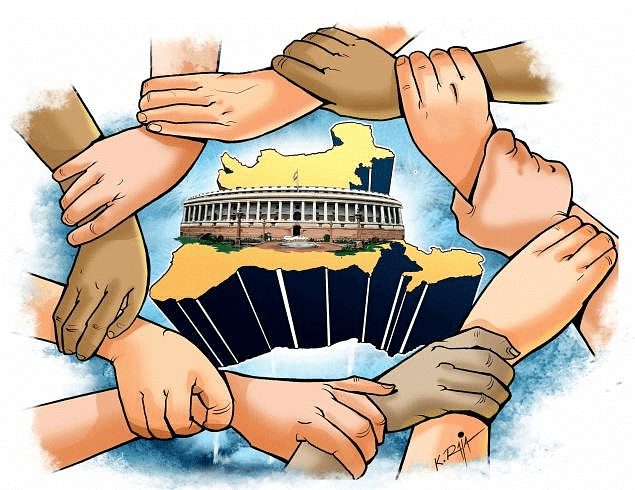 Inter-State Relations
Inter-State Relations
Inter-State Water Disputes
Article 262this article of the Constitution deals with the resolution of inter-state water disputes, outlining two key provisions:
- Parliament can pass laws to settle disputes related to the use, distribution, and control of waters in inter-state rivers and valleys.
- Parliament has the authority to stipulate that neither the Supreme Court nor any other court can exercise jurisdiction over such disputes.
In line with these provisions, Parliament has enacted two laws:
River Boards Act (1956)
This Act facilitates the creation of river boards, established by the Central government at the request of concerned state governments, to offer advice on the regulation and development of inter-state rivers and valleys.
Inter-State River Water Disputes Act (1956)
empowers the Central government to establish ad hoc tribunals for resolving disputes between two or more states regarding the waters of inter-state rivers or valleys. The tribunal's decision is final and binding on the disputing parties, with no jurisdiction granted to the Supreme Court or any other court in such matters. To date, the Central government has set up various tribunals to address inter-state water disputes.
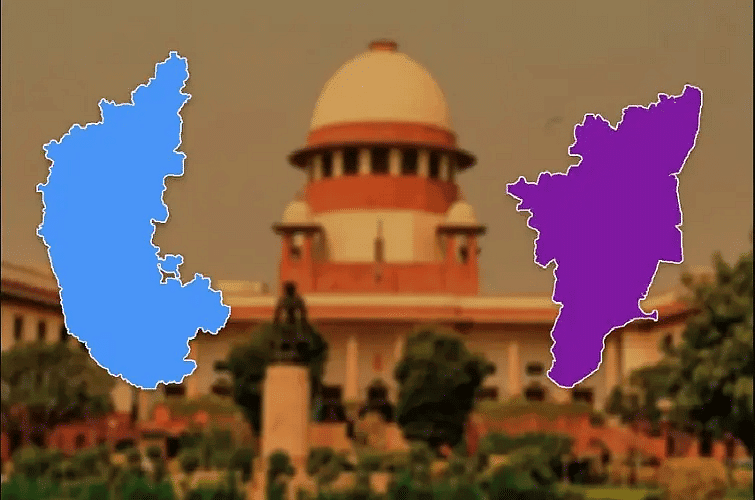
Inter-State Councils
Article 263It outlines the creation of an Inter-State Council to facilitate coordination among states and between the Centre and states. The President can establish this council if deeming it beneficial for the public interest and determines its duties, organization, and procedures. While the President can define the council's duties, Article 263 specifies potential assignments as follows:
- Resolving disputes between states.
- Investigating and discussing matters of common interest between states or between the Centre and states.
- Offering recommendations on such subjects, especially for improved policy and action coordination.
The council's role in investigating and advising on inter-state disputes complements the Supreme Court's jurisdiction under Article 131, which provides a legal resolution for government disputes. However, the council's function is advisory, unlike the court's binding decisions. In accordance with Article 263, the President has established councils to enhance policy coordination in various areas, including the Central Council of Health and Family Welfare, the Central Council of Local Government, and four Regional Councils for Sales Tax in the Northern, Eastern, Western, and Southern Zones.
The Sarkaria Commission on Centre-State Relations (1983-88)
- Prime Minister as the Chairman
- Chief Ministers of all states
- Chief Ministers of union territories with legislative assemblies
- Administrators of union territories without legislative assemblies
- Governors of States under the President's rule
- Six Central Cabinet ministers, including the home minister, were nominated by the Prime Minister.
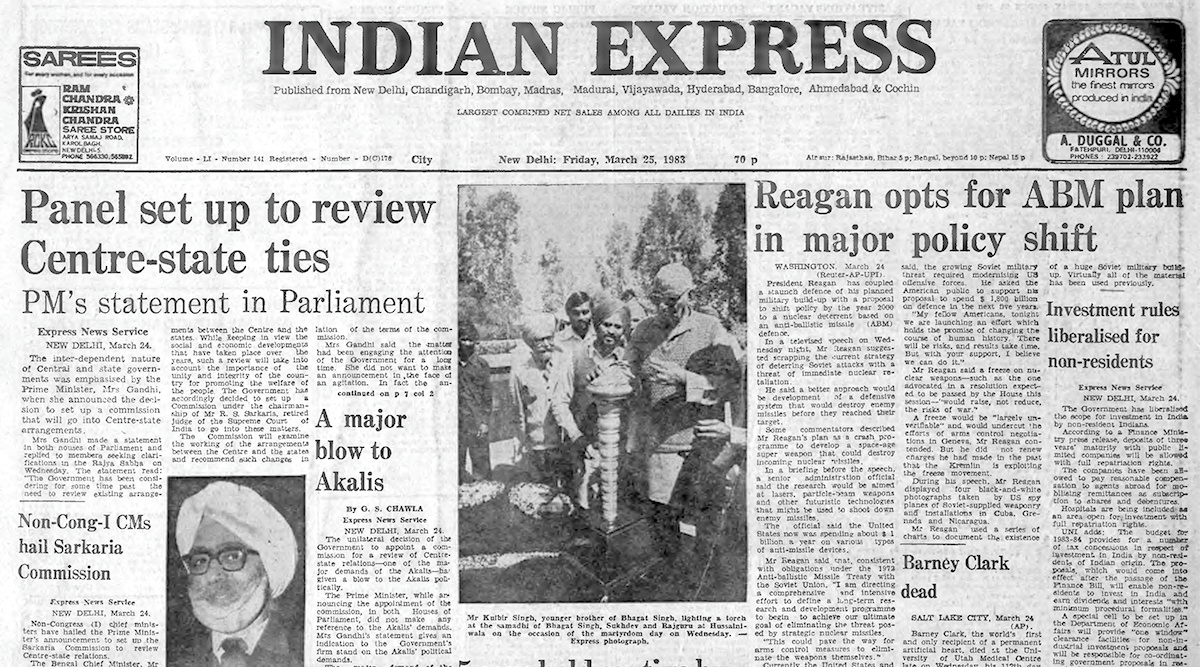
Five Ministers of Cabinet rank or Minister of State (independent charge), nominated by the Council Chairman (i.e., Prime Minister), are permanent invitees to the Council. The council serves as a recommending body on matters related to inter-state, Centre-state, and Centre-union territory relations. Its goal is to enhance coordination by examining, discussing, and deliberating on such issues. Its detailed duties include:
- Investigating and discussing subjects of common interest to states or the centre.
- Making recommendations for better coordination of policy and action on such subjects.
- Deliberating on other matters of general interest to states as referred by the chairman.
The Council meets at least three times a year, with closed-door meetings and decisions made by consensus.
A Standing Committee was made in 1996
- Union Home Minister as the Chairman
- Five Union Cabinet Ministers
- Nine Chief Ministers
The Council is supported by the Inter-State Council Secretariat, formed in 1991 and led by a Secretary to the Government of India. Since 2011, it has also functioned as the secretariat for the Zonal Councils.
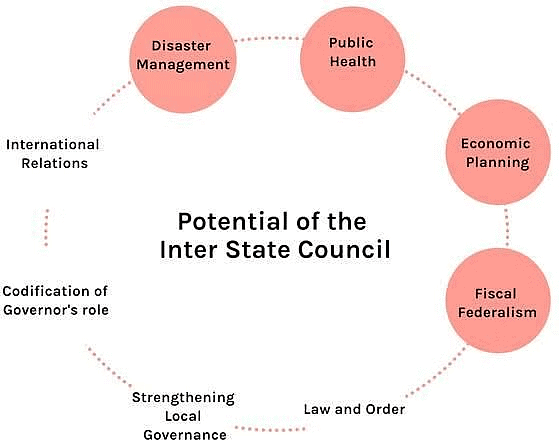 Potential of Inter-State Council
Potential of Inter-State Council
Public Acts, Records And Judicial Proceedings
- Full faith and credit must be given across India to public acts, records, and judicial proceedings of both the Centre and every state. "Public acts" encompass legislative and executive actions, while "Public records" include official books, registers, or records maintained by a public servant in the course of their official duties.
- The method and conditions for proving and determining the effect of such acts, records, and proceedings will be governed by the laws enacted by Parliament. This implies that the general rule mentioned earlier is subject to Parliament's authority to establish the mode of proof and the impact of such acts, records, and proceedings of one state in another.
- Final judgements and orders of civil courts in any part of India can be executed anywhere within the country without the need for a fresh lawsuit on the judgement. This rule applies exclusively to civil judgements and does not extend to criminal judgements, meaning that it does not compel the courts of one state to enforce the penal laws of another state.
Inter-State Trade and Commerce
Articles 301 to 307 in Part XIII
The freedom guaranteed by Article 301 encompasses not only inter-state trade but also intra-state trade. Violations can occur at state borders or at any preceding or subsequent stage of trade and commerce.
This freedom is absolute, except for the restrictions outlined in other provisions (Articles 302 to 305) of Part XIII of the Constitution:
- Parliament can impose restrictions on trade, commerce, and intercourse between states or within a state in the public interest. However, it cannot show preference or discrimination between states unless there is a scarcity of goods in any part of India.
- State legislatures can impose reasonable restrictions on trade, commerce, and intercourse within the state in the public interest. Such restrictions require prior sanction from the president. Additionally, state legislatures cannot favor one state over another or discriminate between states.
- State legislatures can impose taxes on goods imported from other states or union territories, but these taxes cannot be discriminatory.
- The freedom under Article 301 is subject to nationalisation laws, allowing Parliament or state legislatures to pass laws for the government's exclusive or partial control of trade, business, industry, or service.
Zonal Councils
The Zonal Councils are statutory bodies, established not constitutionally but by an Act of Parliament, specifically the States Reorganisation Act of 1956. The act divided the country into five zones (Northern, Central, Eastern, Western, and Southern) and provided a zonal council for each zone. The formation of these zones considered various factors, including natural divisions, river systems, means of communication, cultural and linguistic affinities, as well as requirements for economic development, security, and law and order.
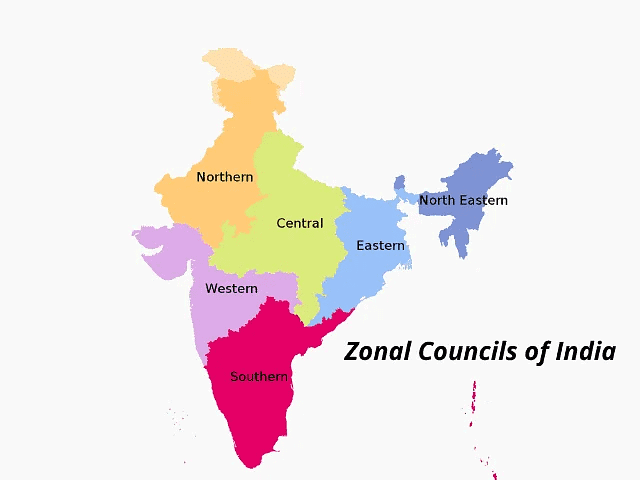
Each zonal council comprises the following members:
- Home Minister of the Central Government
- Chief Ministers of all the states in the zone
- Two other ministers from each state in the zone
- The administrator of each union territory in the zone
- A person nominated by the NITI Aayog.
- Chief Secretary of the government of each state in the zone.
- Development Commissioner of each state in the zone.
The Home Minister of the Central Government serves as the common chairman of the five zonal councils. Each Chief Minister acts as a vice-chairman in rotation, holding office for one year at a time. The primary purpose of the zonal councils is to promote cooperation and coordination among states, union territories, and the Centre. They discuss and make recommendations on various matters, including economic and social planning, linguistic minorities, border disputes, interstate transport, and more. However, they are purely deliberative and advisory bodies.
The detailed objectives (or functions) of the zonal councils include:
- Achieving emotional integration of the country.
- Helping curb the growth of acute state consciousness, regionalism, linguism, and particularistic trends.
- Aiding in mitigating the after-effects of separation in some cases, synchronizing the processes of reorganization, integration, and economic advancement.
North-Eastern Council Act of 1971
- Additionally, alongside the Zonal Councils, a North-Eastern Council was established by a distinct Act of Parliament, namely the North-Eastern Council Act of 1971.
- Its members consist of Assam, Manipur, Mizoram, Arunachal Pradesh, Nagaland, Meghalaya, Tripura, and Sikkim.
- The functions of this council are similar to those of the zonal councils, with a few additions.
- It is tasked with formulating a unified and coordinated regional plan covering matters of common importance.
- Furthermore, it is required to periodically review the measures taken by the member states to maintain security and public order in the region.
|
142 videos|779 docs|202 tests
|
FAQs on Laxmikanth Summary: Inter-State Relations - Indian Polity for UPSC CSE
| 1. What are Inter-State Water Disputes? |  |
| 2. What is the role of Inter-State Councils in resolving disputes between states? |  |
| 3. How do Public Acts, Records, and Judicial Proceedings impact inter-state relations? |  |
| 4. What is the significance of Inter-State Trade and Commerce in fostering cooperation between states? |  |
| 5. How do Zonal Councils contribute to enhancing inter-state relations in India? |  |
















